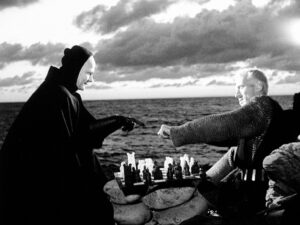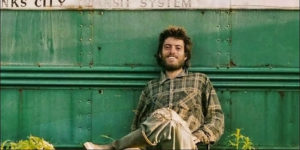The Unabomber and I share several connections. Both of us hold PhDs, are of Eastern European descent, and attempted to escape the dismal modern world by fleeing to remote locations in western Montana — he after leaving academia, me just before entering it. We even indirectly communicated through a mutual friend, about an article on attorney’s fees that I wrote for the Duke Law Review, which he claimed to have found “interesting”. However, our connections stop there.
Unlike Theodore “Ted” Kacyznski, I have no criminal record — the only person in my immediate family who can claim that. Perhaps most important, my flight to Montana was temporary: I returned to the world after coming to my senses, and started a family in Pittsburgh, only 40 minutes north of my small hometown. Kacyznski, at my age, was living in the waterless and electricity-free cabin where he typed out his 35,000-word manifesto while coordinating a 16-year mail bomb campaign that killed three people and injured 23 others. He died last week at 81, having whiled away his final years in a federal penitentiary.
For as long as America has existed, its men have fled for the hills. In Walden; or, Life in the Woods, Henry Thoreau wrote “we need the tonic of wilderness”. Almost 150 years later, his words influenced Christopher McCandless, who died after going into the wild. Regardless of the tragedy and suggested inauthenticity of stories like this, they fascinate the political chattering classes: from Barry Goldwater’s speechwriter, Karl Hess, who relocated to rural West Virginia later in life, to full-time proponents of “agrarianism” and other “back to the land” ideologies. These ideologies are diverse in their themes but, in the main, argue for a reconnection with the natural world. Modern life, they say, has severed our intrinsic relationship with the environment. Often gaining prominence at times of social upheaval and discontent — as with hippie communes in the Sixties and today’s homesteaders — they claim that industrial society’s obsession with progress and consumption eclipses essential human experiences and values. Sometimes, they wind up idealising a past that was, in reality, fraught with hardship and inequality.
Underlying these ideologies is a powerful sense of foreboding. Those who advocate fleeing to the hills would seem to be eagerly awaiting doomsday — be it environmental, racial, class-based, or a horrific combination thereof. On both Left and Right, there’s a bumper crop of texts to excite their imaginations. The apocalypticism manifests in a call to action, to prepare, resist, or attempt to reverse course before it’s too late; it highlights genuine concerns while also making readers partners in an exciting race against destruction.
The inclination to escape is not inherently outrageous. Who hasn’t yearned, in a moment of stress or dissatisfaction, for the simplicity of a life untangled from societal woes? Yet, throughout human history, most of us have either chosen or, more often the case, been compelled to remain near home; escape is a privilege of which only a few can avail themselves. Even those who claim to live without money in remote places often rely on resources inaccessible to many. Moreover, these individuals tend to have the privilege of choice: the option to reject modern conveniences, the opportunity to learn and hone survival skills, the safety net of a family to return to if things go awry. In this sense, dropping out of society — as with those Roman senators who took to their grand countryside villas during the waning days of that empire — is a fantasy of the upper classes.
But beyond issues of class and economics, most of us are held to our communities by invisible, powerful ties. We are entwined in a complex web of relationships, responsibilities, and affections. The young feel the weight of these things less. Back when I was a superficially educated 19-year-old college graduate, Kacyznski’s Industrial Society and Its Future held a preeminent place in my worldview. Kacyznski believed autonomy was impossible in an industrial society. “As long as the system GIVES them their opportunities, it still has them on a leash,” he wrote. Reforming this “Industrial-Technological Society” was impossible; only radical revolutionaries could bring about lasting changes. Karl Marx’s concluding exhortation from “Theses on Feuerbach” says much the same: “The philosophers have only interpreted the world, in various ways; the point is to change it.”
Kaczynski’s manifesto and Marx’s calls to action appealed to me, and many other young adults, precisely because they promised a means of breaking free from societal confines. The young long for autonomy, to seize control in a world that often seems controlled by faceless entities and systems. It took some time for me to realise that Kacyznski, venturing outside his own academic field of mathematics, was in fact summarising fairly well-established critiques of capitalism and Leftism. The Frankfurt School theorists’ critique of the “culture industry” or Herbert Marcuse’s theories of one-dimensional man echo similar sentiments about the dehumanising effects of modern industrial societies. However, what set Kaczynski apart was the way he packaged these criticisms into an eco-fatalist, doomerist narrative with carefully numbered paragraphs.
“Had we but world enough and time”, we might be able to take the advice of revolutionaries like Kaczynski and Marx to heart. We could possibly devote our lives to relearning the skills necessary for physical labour, striving for a self-sufficient existence, toiling away while the world around us succumbs to apocalyptic decay. However, the reality for most people, as they navigate the complexities of adulthood, is a series of compromises and an acceptance of societal norms, conflicts, and even banalities. We work steady jobs, contribute to society in our own ways, and seek a balance between our ideals and the practical demands of our daily lives. After my time in Montana, I returned to academia, before settling into a career in the private sector and starting a family. My desired ending isn’t in the wilderness, but rather here in the Rust Belt, like most of my predecessors.
Looking back, I see my Montana sojourn as a phase, an exploration of ultimately unsustainable idealistic philosophies. My life now bears more similarity to those of the well-educated cultural critics who often spout back-to-land ideologies, while paradoxically relying on modern technologies to promote their books and podcasts about self-sufficient living, or offering to let you toil on their land for free, as part of a quasi-cult or glorified multilevel marketing scheme. I get it: when I lived in Montana, I believed I was the last sane person in a soon-to-be-extinguished world. At the same time, I harboured aspirations of writing the next Great American Novel: I wanted to communicate with the world, to share my experiences and ideas, even if those ideas involved little more than getting people to acknowledge my prescience. Even those who flee into the wilderness want to connect — perhaps especially.
Kaczynski was unable or unwilling to reintegrate into society, whereas I became disillusioned with his ideas because they began to seem impractical — interesting, to be sure, yet also surprisingly childish. For all its failings, society offers us human connection, a shared history, and communal resilience in the face of adversity. We endure the disappointments of civilisation because, at its best, it provides us a framework to collaborate, innovate, and work towards something better. Kaczynski, it appears, never had this moment of disillusionment — nothing compelled him to grow up and simply accept “Industrial Society’s” leash.
The end of the world has been eternally predicted. Perhaps it really will extinguish the lot of us, and the collapse and decline that each succeeding generation’s bumper crop of Cassandras predict will come to pass. These theories of moral decline and accompanying societal collapse are evergreen. The terminology and concerns may change — overpopulation, underpopulation, heat death, a new ice age — but the adolescent anxiety remains the same. “Things ain’t like they used to be and they never were,” now at least has some social science research buttressing it.
My dissertation advisor used to jest about the inherent appeal of the collapse genre. There’s a certain romantic allure to the idea of witnessing and surviving the “world’s last night“. This apocalyptic charm — a once-in-a-lifetime chance to die with the world, to be there when the lights go out — invariably attracts those people who struggle to grow up.
Kaczynski was apparently unable to truly grasp the cyclical nature of history — the one field neglected in Industrial Society and Its Future. He was caught in a loop of perceived decay without recognising the possibility for growth and improvement. Alas, we still face a seeming repetition of all the problems outlined in Peter Finch’s endlessly recyclable rant from the 1976 film Network — inflation, the Russians, air that’s unfit to breathe, crime in the streets — yet none of us can know how these things will sort themselves out, only that whatever happens will be unlike anything that came before. History repeats itself — life always ends in death! — but never the same way twice.
As mere mortals born into that history, we must live in the world as it is, not as we imagine or fear it to be. The world may not be getting better, but neither is it necessarily spiralling towards global disaster. And those who attempt to flee, to escape the complexities of society, often find themselves reaching back towards it, be it through writing blogs from the wilderness or through violent acts like Kaczynski’s bombing campaign. As for the rest of us, our life may feel banal, fraught with the usual concerns about our family’s future and the state of the world. Yet it’s also tempered by an acceptance of mortality — perhaps the most powerful counterpoint to the more extreme doom-laden narratives.
Disclaimer
Some of the posts we share are controversial and we do not necessarily agree with them in the whole extend. Sometimes we agree with the content or part of it but we do not agree with the narration or language. Nevertheless we find them somehow interesting, valuable and/or informative or we share them, because we strongly believe in freedom of speech, free press and journalism. We strongly encourage you to have a critical approach to all the content, do your own research and analysis to build your own opinion.
We would be glad to have your feedback.
Source: UnHerd Read the original article here: https://unherd.com/



